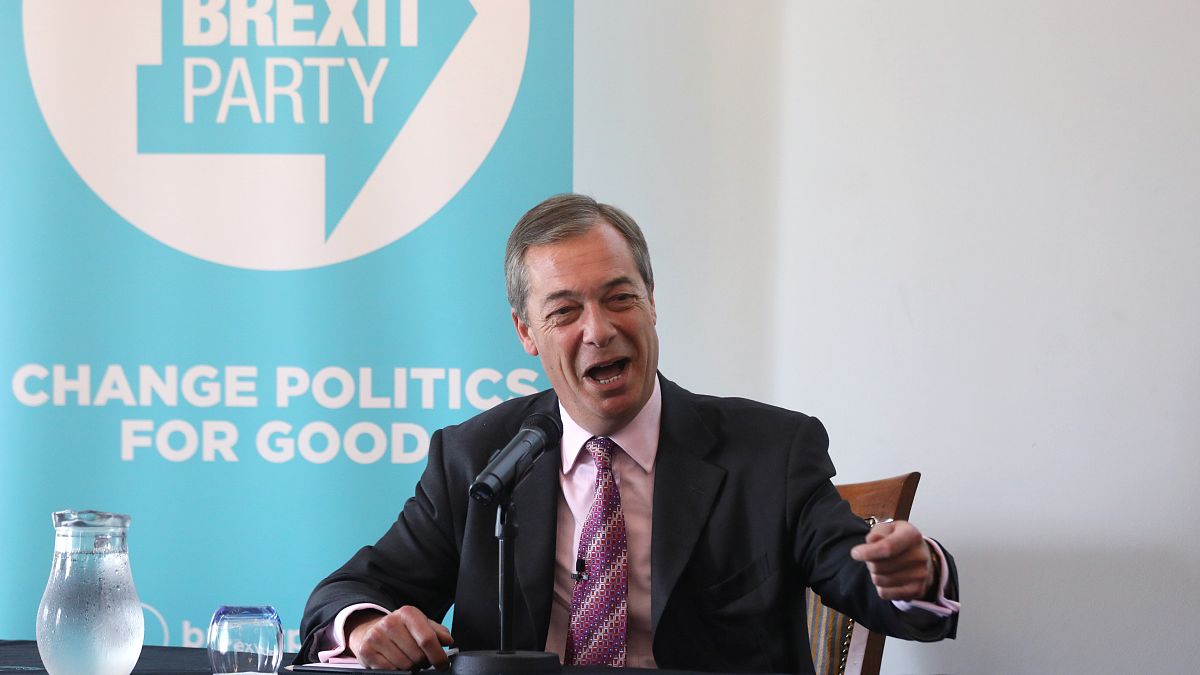Six weeks after the 2019 European Parliament elections, Nigel Farage’s party are still receiving far more interactions on their official social media pages than any other major UK political party.
This week, the Brexit Party launched a brand new show on YouTube, BrexBox, claiming it will enable the party to reach and engage with supporters without the need of the UK "mainstream media".
The podcast format is the latest move by the pro-Leave campaign to increase its social media following, which has already grown significantly since the party was formed in January.
Some of the Brexit Party’s own MEPs have described BrexBox as "compelling" while some political commentators have called it "innovative".
The Brexit Party, the single largest individual party in the new European Parliament, has more than 166,000 followers on Twitter and nearly 150,000 followers on Facebook. Despite spending very little money on their social media campaign, the Brexit Party, among other pro-Leave campaigners, are the clear leaders when it comes to social media policy, as the battle for the future of Brexit continues.
‘Britain was right to vote to leave, we're off!’
Six weeks after the 2019 European Parliament elections, Nigel Farage’s party are still receiving far more interactions on their official social media pages than any other major UK political party, according to data from CrowdTangle.
The contrast is even more apparent when the Brexit Party is compared to those parties campaigning for Britain to remain in the European Union, such as the Liberal Democrats and the Independent Group for Change. Although some of this activity has been found on several bot accounts, this does not detract from the overall picture.
This week, a video of Brexit Party MEP Anne Widdecombe addressing the European Parliament, with the caption ‘Britain was right to vote to leave, we're off! Widdecombe is on fire!’ received more than 16,000 likes on Facebook. This is three times more than any other Facebook post by a major UK political party in the last 30 days.
The impact is not limited to the party’s own social media accounts. A large network of Facebook groups regularly share social media posts from the Brexit Party, with names such as “I’m a Brexiteer” and “Anti Eu - Pro British” - each has significant online followings themselves.
‘Their messaging is much more brutal and simple’
Michael Harris, CEO of 89UP, a London-based online content and social media consultancy, told Euronews the Brexit Party’s social media success can be attributed to "very clear messaging".
“When the public sees this type of messaging, there is total clarity. [The Brexit Party] do not have to explain what the mechanism of a People’s Vote would look like, or the dynamic of what cancelling Article 50 would mean. Their messaging is much more brutal and simple.”
In contrast to the social media activity of the Leave campaign before the June 2016 referendum, the Brexit Party are no longer trying to explain what sort of Brexit deal they want. Their clear message now is that the UK should just leave the European Union.
‘Facebook’s algorithm incentivises content that gets high levels of engagement’
In the EU elections, Nigel Farage’s party accounted for 51% of all shared content on Facebook and Twitter during the campaign, despite only producing 13% of the content. This according to research published by 89UP. But their success was mirrored in several other countries by similar campaign movements.
Michael Harris argues that populist parties are specifically structuring their content based on the technology behind social media functions.
“Facebook’s algorithm, for example, incentivises content that gets high levels of engagement, so if you have a really snappy message and deliver it in a blunt way, the Facebook algorithm will share it with more people. So populist messaging across Europe does far better than messaging from mainstream political parties, which might be more nuanced and reformed.”
Research shows that far-right parties in France and Germany also outpaced mainstream political groups on Facebook when it came to winning engagement from users ahead of the 2019 European Elections.
When it comes to anti-Brexit campaigners, the Liberal Democrats did cause a stir in this week with their catchy, if not controversial, slogan which they wore on bright yellow t-shirts in the first sitting of the new European Parliament.
Despite their relative success in the elections, Mr Harris believes pro-Remain groups like the Liberal Democrats need to make their messaging “more direct” and tailor their social media campaigning to different demographics and regions across the UK if they are to compete with the engagement and success of the Brexit Party.
